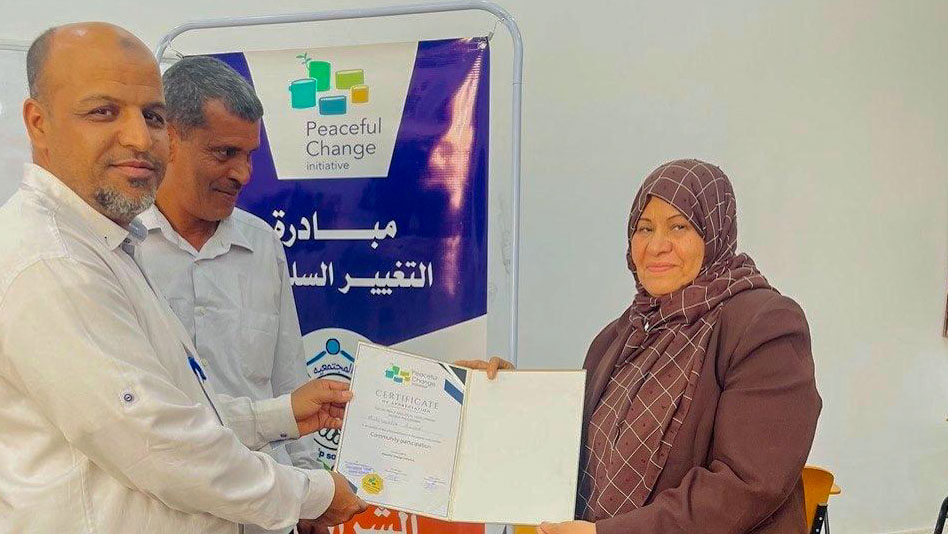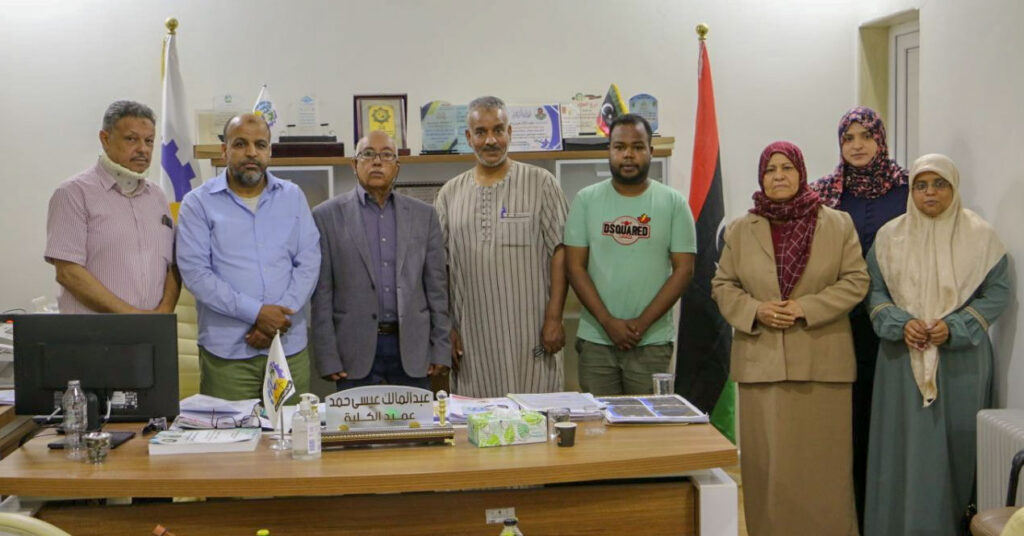Jakharra is a small town in eastern Libya where social and gender norms are rather restrictive towards the role of women in the public sphere. Since its inception in 2017, the Jakharra Social Peace Partnership is committed to expanding women’s inclusion both within the partnership itself and in the wider community, despite the challenging environment in which it operates. Because of its commitment to women’s inclusion, PCi selected the partnership to pilot a Gender and Security workshop in February 2023.
The aim of the Gender and Security workshop is to bridge the gap between men and women’s understandings of security. The workshop has a particular focus on encouraging men to reflect on how they can contribute to enhancing women’s security. A recent assessment, conducted by PCi, provided useful insights on the ways in which women and men’s notions and experiences of ‘security’ differ. The assessment also highlighted that men are often unaware of the range of security challenges faced by women daily.
Gender and Security workshop: understanding challenges around security
The workshop in Jakharra brought together a range of members from the Social Peace Partnership. They included local CSOs, the Municipal Women’s Empowerment Office (WEO) and the local Higher Education College and Faculty of Energy’s student union. Both women and men attended the workshop. First working as separate groups, then together, they exchanged on perceptions, experiences, and the challenges they face around security.
A key finding was that women in Jakharra face significant obstacles in accessing higher education opportunities. Most women in Jakharra do not pursue further studies after their high school degree. The closest university college considered as ‘appropriate’ or ‘suitable’ for women to attend is in the town of Jalu, 40km away. The geographic distance prevents most women from attending because they are not willing, or not allowed, to commute alone due to security risks and prevailing social norms.

To date, young women have not been able to enrol in the only higher education institution based in Jakharra, the Faculty of Energy. This is due to a combination of factors, including security risks as well as perceptions and concerns from female students and their families about attending a male-dominated and mixed environment. Also, engineering has not traditionally been a field in which women are encouraged to study or pursue a career.
Finding solutions to encourage women’s inclusion in higher education
Following the workshop, the partnership collaborated with the Faculty of Energy and the Municipality to facilitate a series of meetings to identify steps to take to encourage female enrolment. The SPP also met with department heads at the faculty, most welcomed the idea of women’s inclusion, because having more teachers and supported plans to expand the university. The partnership then proposed an initiative to enrol female students and convinced the dean to move forward with the project. They also engaged with parents of female students in Jakharra to advocate for their daughters’ higher education and address their concerns.
“We learned from the training that finding like-minded allies in the institution is an important step, as well as building a consensus by developing a case for the project that shows how every stakeholder – and how society as a whole – benefits from furthering women’s education.”
– Salheen Awam, Head of the Jakharra Social Peace Partnership
On 13 August 2023, the Faculty of Energy published a joint statement by its president, Abdulmalek Hamed, and the Jakharra Social Peace Partnership Head, Salheen Awam, announcing that female students could start the enrolment process by March 2024. The faculty is currently building and equipping new study halls dedicated to female students.
The importance of integrating gender in community-level peacebuilding
While still in its initial phase, this project makes clear the importance of integrating gender into community-level peacebuilding and of doing so in ways that are sensitive and responsive to the local context. The Jakharra partnership has successfully advocated for social change and for greater women’s inclusion in higher education. Collaborating with both men and women has also proven effective at shifting attitudes and turning the role of men from gatekeepers to allies.
PCi will continue to monitor this project, particularly after the start of the enrolment period in March 2024. We will also capture any learning that can help Social Peace Partnerships across Libya put in place similar initiatives.

These activities are part of the project ‘Social Peace and Local Development’, funded by the UK Foreign, Commonwealth & Development Office. Integrating gender across all aspects of programming is a core focus of this project. In collaboration with Social Peace Partnerships, we implement a range of gender-focused initiatives. These include providing women with meaningful participation and leadership opportunities within SPP projects and collaborating with men as allies to create a safer environment for women’s inclusion and participation.
